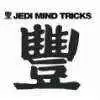-
Welcome to Celiac.com!
You have found your celiac tribe! Join us and ask questions in our forum, share your story, and connect with others.
-
Celiac.com Sponsor (A1):
Celiac.com Sponsor (A1-M):
-
Get Celiac.com Updates:Support Celiac.com!
Agoraphobia; Fear Of The Marketplace.
-
Get Celiac.com Updates:Support Celiac.com:
-
Celiac.com Sponsor (A17):
Celiac.com Sponsor (A17):
Celiac.com Sponsors (A17-M):
-
Recent Activity
-
- Manaan2 replied to Manaan2's topic in Related Issues & Disorders13
Vitamin Levels and constipation
Thank you! This is great information and perfect timing because we have our first appointment for a second opinion tomorrow. -
- trents commented on Jefferson Adams's article in Conferences, Publicity, Pregnancy, Church, Bread Machines, Distillation & Beer4
Welsh Pizzeria Crafts Award-Winning Gluten-Free Pizza
Well, you asked how it could be gluten free and I was just explaining how it could be. And that must be the case sense the entire dish is being marketed as gluten free. If one of the ingredients is not gluten free, then the entire dish is not. -
- Tee terre commented on Jefferson Adams's article in Conferences, Publicity, Pregnancy, Church, Bread Machines, Distillation & Beer4
Welsh Pizzeria Crafts Award-Winning Gluten-Free Pizza
Peekaboo, Here I am! The article didn’t state that it was specially brewed gluten free beer. I would think that people who were recently diagnosed may be confused by the lack of information. -
- trents commented on Jefferson Adams's article in Conferences, Publicity, Pregnancy, Church, Bread Machines, Distillation & Beer4
Welsh Pizzeria Crafts Award-Winning Gluten-Free Pizza
There are a number of gluten free beer products on the market these days. Where have you been? It just has to be brewed from non-gluten containing sources such as sorghum. -
- trents replied to nanaimobar's topic in Celiac Disease Pre-Diagnosis, Testing & Symptoms2
Doc says I have celiac, despite no GI symptoms?
Bright blood in the stool would indicate bleeding down at the lower end in the colorectal area as opposed to the small bowel below the stomach where celiac manifests damage to the villous lining. Are these blood stools persistent? It's not unusual for this to happen once in a while to most anyone when a small surface vessel breaks, kind of like a nose bleed...
-



.thumb.jpg.7bad51ed6a943bd2a58c19e3dee802d5.jpg)

Recommended Posts
Archived
This topic is now archived and is closed to further replies.